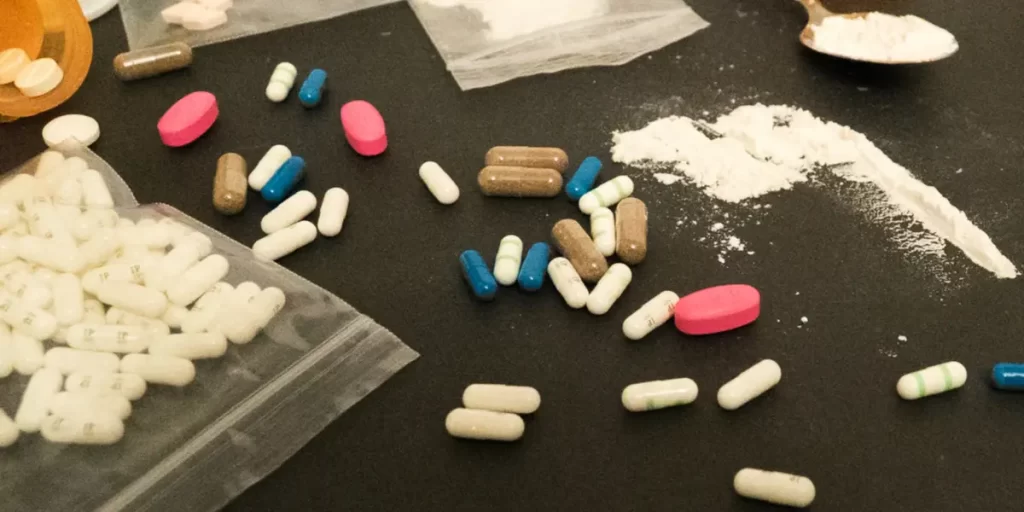Call us now:
Not all court rulings are applicable to most cases, but when a court takes the time to explain the rules of drug possession in Florida it helps to listen. The 2nd DCA explained the basic ideas of one of the most common Florida crimes in felony court in a recent ruling when dealing with a ‘judgement of acquittal’ motion, and it has broad application in Florida.
Florida criminalizes the possession of illicit drugs primarily in Fl. St. 893.13.(the section of the Florida statutes dealing with drug prevention and control) However this section doesn’t explain some of the most common questions people have about drug possession, and for that you have to look to caselaw and the Florida standard jury instructions.
In a recent appellate decision, David Keith Thompson v. State, the Florida Second District Court of Appeal affirmed the conviction of a defendant for trafficking in methamphetamine, possession of fentanyl, and possession of drug paraphernalia. The ruling offers an important look at how Florida courts evaluate constructive possession—a concept often misunderstood by defendants charged with drug offenses.

Case Facts
David Thompson was a passenger in a vehicle stopped by the Pasco County Sheriff’s Office. During a lawful canine sniff, officers discovered narcotics in several locations inside the car—including a black case located on the passenger-side floorboard, directly at Thompson’s feet. Inside that case were methamphetamine, fentanyl, a glass pipe, a straw, and a plastic baggie.
After being advised of his rights under Miranda v. Arizona, 384 U.S. 436 (1966), Thompson admitted to recently purchasing “that meth” for about $100. He denied selling methamphetamine but acknowledged recent drug use and admitted to using a straw to ingest narcotics—the same type of straw found in the case.
At trial, Thompson moved for a judgment of acquittal, arguing that the State failed to prove he possessed the drugs and paraphernalia. The trial court denied the motion, and the appellate court affirmed. In agreeing with the trial Court that the JOA was properly denied, the appellate Court explained why the lower Court was correct, and in the process explained Florida law as applied to these facts. At issue were multiple concepts- Actual vs Constructive possession, constructive possession in a jointly occupied vehicle, the concept of trafficking drugs in Florida.

The Law: Actual vs. Constructive Possession
Under Florida law, possession of controlled substances can be actual or constructive. Possession can be actual or constructive. Nugent v. State, 275 So.
3d 721, 723 (Fla. 2d DCA 2019) (citing Sanders v. State, 210 So. 3d 246, 248 (Fla. 2d DCA 2017)).
- Actual possession occurs when the contraband is in the person’s hand, on their person, in a container in their hand, or within such close proximity that it is under their direct physical control.
- Constructive possession occurs when the contraband is not in a person’s immediate physical possession but the person knows of its presence and has the ability to exercise dominion and control over it.
This distinction is well established in Florida law, and the easiest place to see this distinction explained is in the Florida Standard Jury Instructions (which are publicly available).
The Florida Standard Jury Instruction on possession, Fla. Std. Jury Instr. (Crim.) 25.7, explains that:
“To prove the crime of possession of a controlled substance, the State must prove beyond a reasonable doubt that the defendant (1) knew of the presence of the substance and (2) exercised control or had the power and intent to exercise control over it.”
And importantly, the standard jury instructions explain the concept of control as follows: Control can be exercised over a substance whether the substance is carried on a person, near a person, or in a completely separate location. Mere proximity to a substance does not establish that the person intentionally exercised control over the substance in the absence of additional evidence. Control can be established by proof that (defendant) had direct personal power to control the substance or the present ability to direct its control by another.

Constructive Possession in Jointly Occupied Vehicle
When drugs are found in a jointly occupied vehicle, mere proximity to contraband is not enough. The State must present independent evidence that connects the defendant to the drugs beyond simply being near them. See Wiley v. State, 296 So. 3d 979, 982 (Fla. 2d DCA 2020).
Independent proof of knowledge and control may come from:
- Incriminating statements,
- Conduct demonstrating awareness of the contraband, or
- Other circumstances beyond proximity.
See Rangel v. State, 110 So. 3d 41, 44–45 (Fla. 2d DCA 2013); Murphy v. State, 511 So. 2d 397, 399 (Fla. 4th DCA 1987).
Application to Thompson’s Case
In Thompson, the appellate court emphasized that the defendant’s own post-Miranda statements provided the necessary independent proof. Thompson’s admission that he had just purchased “that meth” and his acknowledgment of using a straw similar to the one found in the case tied him directly to the contraband.
Because these statements went beyond mere presence or proximity, they satisfied the elements of constructive possession under Florida law. The jury could reasonably infer that Thompson had both knowledge of the drugs and the ability to exercise dominion and control over them.
As the court explained, questions of dominion and control are typically for the jury to decide, unless the evidence is wholly insufficient to support such a finding. See Byers v. State, 17 So. 3d 825, 827 (Fla. 2d DCA 2009).
Trafficking and Possession Charges
Thompson’s conviction for trafficking in methamphetamine was based on § 893.135(1)(f), Florida Statutes, which criminalizes the knowing possession, sale, or transport of specified quantities of methamphetamine. Possession of fentanyl is governed by § 893.13(6)(a), Florida Statutes, while possession of drug paraphernalia falls under § 893.147(1), Florida Statutes.
These statutes do not distinguish between actual and constructive possession—the key issue is whether the State can prove the defendant knowingly possessed the controlled substance, however that possession is established. The primary difference in Florida of trafficking and possession of a controlled substance is the weight of the substance, (for example less than or more than 28 grams of cocaine)
Key Takeaways
- Constructive possession requires proof of both knowledge and control. Proximity alone is insufficient.
- Incriminating statements—even denials that acknowledge awareness of contraband—can provide the independent proof needed to survive a motion for judgment of acquittal.
- Joint occupancy cases require careful analysis. Passengers in a car may not be presumed to possess drugs found nearby unless there is additional evidence linking them.
- Juries decide factual disputes about dominion and control; appellate courts defer to the jury’s reasonable inferences when supported by evidence.
Defenses and Issues to Keep in Mind
Good Faith § 893.21, Fla. Stat. – A person acting in good faith who seeks medical assistance for himself, herself, or another experiencing or believed to be experiencing a drug-related or alcohol-related overdose may not be prosecuted for simple Possession of a Controlled Substance if the evidence of the possession was obtained as a result of the person seeking medical assistance.
Involuntary or Superficial Possession – A special instruction is necessary when the defense is a mere involuntary or superficial possession. See cases such as Hamilton v. State, 732 So. 2d 493 (Fla. 2d DCA 1999) and Sanders v. State, 563 So. 2d 781 (Fla. 1st DCA 1990).
Conclusion
The Thompson case reinforces that constructive possession can be proven through circumstantial evidence and admissions that demonstrate both awareness and control over contraband. For defendants in Florida facing drug trafficking or possession charges, this decision highlights the importance of remaining silent and exercising constitutional rights under the Fifth Amendment and Article I, Section 9 of the Florida Constitution when confronted with police questioning.
Defense attorneys must carefully challenge the sufficiency of the State’s evidence and scrutinize any alleged admissions for compliance with Miranda and voluntariness standards.
If you or someone you know is charged with a drug trafficking or possession offense in Florida, understanding the nuances of constructive possession may be the difference between conviction and acquittal.
Why Retaining an Attorney Matters
Criminal Defense Lawyer Matt Landsman at Landsman Law helps people accused of crimes in Gainesville, Alachua County, Bradford County, Levy County, Gilchrist County, and surrounding areas of north Florida. If you need help for yourself or a loved one, contact Criminal Defense Attorney Matt Landsman for a free consultation today. For help with any Criminal Matter from Board Certified Criminal Trial Lawyer Matt Landsman – CALL NOW
If you’re accused of any criminal matter, retaining an attorney is critical to protecting your rights. These cases will involve constitutional questions and concern allegations of misconduct or are sensitive in nature, requiring a skill, preparation and experience. For expert legal help, contact Gainesville Defense Lawyer Matt Landsman to protect your rights today.
